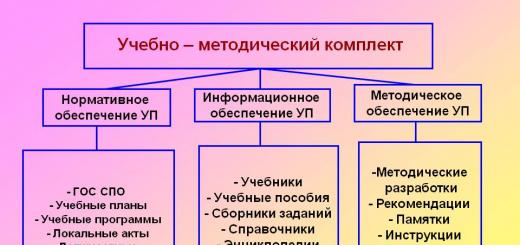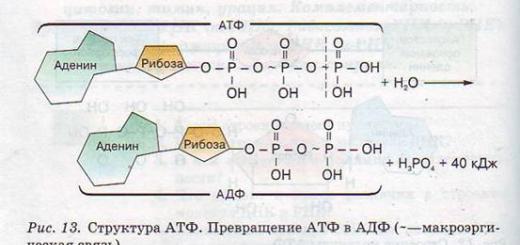“Truth is born in dispute!” - We are all familiar with this statement. But in order for this truth to appear, it is necessary to use a sufficient number of arguments and facts. A fact is a unit of philosophy that does not require proof. And this meaning is familiar to many. What is an argument?
Philosophy
An argument represents the basis of evidence or that part of it on which reality is based or in which the main evidentiary power is contained.
Depending on the purpose pursued in proving, the argument can be of several types:
1. Argument ad hominem (calculated on prejudices). Here, the basis of evidence is personal premises and beliefs, as well as statements.
2. Argument ad veritatem (declaration of truth). Here the proof comes from a statement tested by science, society and objectivity.
3. Argument e consensus gentium. In this case, the proof is what has been believed from time immemorial.
4. Argument a tuto. The proof is decisive in case of insufficiency of other arguments; it is based on the judgment that if it does not help, it will not harm.
5. Argument a baculo (last argument). In this case, if all arguments have been exhausted, the last argument in the dispute is the use of physical force.
Logics

Let's look at what an argument is in logic. Here this concept is a set of judgments that can be used to substantiate the truth of a theory or other judgment. For example, there is a saying: “Iron can be melted.” To prove this, two arguments can be used: “All metals can be melted” and “Iron is a metal.” From these two judgments one can logically deduce the opinion being proved, thereby justifying its truth. Or, for example, the judgment “What is happiness?” The following arguments can be used: “Happiness is different for everyone”, “A person himself determines the criteria by which he classifies himself as a happy or unhappy person.”
Rules
Arguments (A), which are used in the process of proving the truth of a judgment, must be subject to certain rules:
a) arguments must be true opinions and judgments;
b) they must be those judgments whose truth can be established in any case, regardless of opinion;
c) arguments must be the basis of a proven opinion.
If any of the rules are violated, it will lead to logical errors that will make the proof incorrect.
What is an argument in a dispute?
Arguments that are used in a dispute or discussion are divided into several types:
1. To the merits of the matter. In this case, the argument relates to the issue being discussed and aims to justify the truth of the evidence. Here the basic provisions of any theories, scientific concepts and judgments, previously established facts, proven provisions, etc. can be applied.

If these arguments satisfy all the rules, then the proof in which they are used will be logically correct. In this case, the so-called ironclad argument will be used.
2. To a person. Such arguments are used only when there is a need to win an argument or discussion. They are directed to the opponent’s personality and affect his beliefs.
From a logical point of view, such arguments are incorrect and should not be used in a dispute where participants are trying to find the truth.
Types of arguments “to the person”
The most common types of arguments “to a person” are the following:
1. To authority. Here, in the discussion, the opinions and statements of writers, scientists, public figures, and so on are used as arguments. Such arguments may well exist, but they are incorrect. This is due to the fact that a person who has achieved success in a certain area cannot be an authority in other areas, so his opinion here may turn out to be erroneous.

An argument to authority can be applied using the authority of the audience, public opinion, the enemy, and even one’s own. Sometimes a person can invent authority or attribute judgments to people who never expressed them.
2. To the public. Here the person refers to the mood and feelings of the listener. In a dispute, he addresses himself not to his opponent, but to the audience, random listeners, in order to attract them to his side, thus exerting psychological pressure on his opponent. The use of arguments to the public is especially effective when its material interests are affected. So, if one opponent proves that the opponent’s opinion affects those present, then he will win their sympathy.
3. Towards the individual. The arguments are based on the personal characteristics of the opponent, on his shortcomings and advantages, tastes and appearance. If such an argument is used, then the subject of the dispute becomes the identity of the opponent in a negative light. There are also arguments that reveal the merits of the opponent. This technique is often used in courts when defending the accused.
4. To vanity. D This method consists of expressing a large number of praises and compliments to the opponent in order to touch him so that he becomes more flexible and softer.
5. To strength. In this case, one of the opponents threatens to use force or coercion. This is especially true for a person endowed with power or who has a weapon.
6. To pity. What an argument for pity is is quite clear. This is evoking pity and empathy in the enemy. Such arguments are often used by many people who constantly complain about the severity of life and difficulties in the hope of awakening sympathy and a desire to help in their opponent.

7. To ignorance. In this case, one of the opponents uses facts that are unknown to the opponent. Often people are unable to admit that they don’t know something because they believe that doing so will make them lose their dignity. That is why, in a dispute with such people, the argument of ignorance works ironclad.
All of the above arguments are incorrect and should not be used in a dispute. But practice shows the opposite. Most people skillfully use them to achieve their goals. If a person is noticed using one of these arguments, he should point out that they are incorrect and the person is not confident in his position.
Algebra
Let's look at what an argument is in algebra. In mathematics, this concept refers to an independent variable. So, when talking about tables where the value of a function from an independent variable is located, they mean that they are located by a certain argument. For example, in a table of logarithms, where the value of the function log x is indicated, the number x is the argument of the table. Thus, answering the question of what a function argument is, we must say that this is the independent variable on which the value of the function depends.

Argument Increment
In mathematics, there is the concept of “increment of a function and argument.” We already know the concept of “function argument”; let’s look at what argument increment is. So, each argument has some meaning. The difference between its two values (old and new) is the increment. In mathematics this is denoted as follows: Dx:Dx = x 1 -x 0.
Theology
In theology, the concept of “argument” has its own meaning. Here the true proof is the divinity of Christianity, which comes from the prophecies and parables of the wise men, as well as from the miracles performed by Christ. The inextricable connection between thinking and being, as well as the belief that God is the most perfect reality, existing not only in thoughts, but also in the real world, also serves as evidence in the dispute.
Astronomy
In astronomy, the concept of the pericent argument is used. Thus, it represents a certain quantity that determines the orientation of the orbit of a certain celestial body in relation to the equatorial plane of some other celestial body. The latitude argument, used in astronomy, is a certain value that determines the position of a certain celestial body in orbit.

As you can see, it is impossible to give a definite answer to the question of what an argument is, since this concept has several meanings, which depend on the area in which this concept is used. Whatever argument a person uses to prove the truth in a discussion or dispute, it must have logical premises and be based on proven facts. Only in this case will the dispute be correct and true. In any other case, the dispute will be incorrect, and the opponent who uses such arguments will not be sure that he is right.
The complexity of the arguments that are used to prove the truth of beliefs, as well as the entire process of justification, is called argumentation, the main goal of which is to attract the opponent to one’s side in the discussion of a certain problem.
lat. argumentum), l) a judgment (or a set of interrelated judgments) given in support of the truth of something. other judgments (or theories). 2) A. in logic - premise of proof, otherwise called. the basis or argument of the evidence; sometimes A. called. the whole proof.
Excellent definition
Incomplete definition ↓
ARGUMENT
lat. argumentum)
A judgment (or a set of interrelated judgments) by means of which the truth of something is justified. another judgment (or theory). When proving a certain proposition, A. are the grounds, or premises, from which the proposition being proven logically follows. For example, to prove the proposition “Iron is melting,” we can use two A.: “All metals are melting” and “Iron is metal.” Having accepted these two propositions as premises, we can logically deduce from them the proposition being proved and thereby justify its truth.
A., used in the process of proving a certain proposition, must satisfy the following rules:
1. A. must be true propositions.
2. A. must be judgments, the truth of which is established independently of the thesis.
3. A. must be a sufficient basis for the thesis being proven.
Violation of these rules leads to various logical errors that make the proof incorrect.
A. used in a discussion or dispute can be divided into two types: A. ad rem (to the merits of the matter) and A. ad hominem (to the person). A. of the first type are related to the issue under discussion and are aimed at substantiating the truth of the position being proven. The principles or principles of some theory can be used as such A.; definitions of concepts accepted in science; judgments describing established facts; previously proven provisions, etc. If arguments of a given type satisfy the rules listed above, then the proof based on them will be correct from a logical point of view.
A. of the second type do not relate to the essence of the matter and are used only to win a polemic or a dispute. They affect the personality of the opponent, his beliefs, appeal to the opinions of the audience, etc. From a logical point of view, these A. are incorrect and cannot be used in a discussion whose participants strive to clarify and substantiate the truth. The most common varieties are the following:
A. authority - a reference to statements or opinions of great scientists, public figures, writers, etc. in support of one's thesis. Such a link may seem perfectly acceptable, but it is incorrect. The fact is that a person who has received recognition for his success in one area cannot be equally authoritative in all other areas. Therefore, his opinion, going beyond the field in which he worked, may well turn out to be erroneous. In addition, even in the field in which a great man worked, not all of his statements or opinions are absolutely true. Therefore, the reference to the fact that such and such a person held such and such an opinion does not say anything about the truth of this opinion. A. to authority has many different forms. They appeal to the authority of public opinion, to the authority of the audience, to the authority of the enemy, and even to their own authority. Sometimes fictitious authorities are invented or judgments are attributed to real authorities that they never expressed.
A. to the public - a reference to the opinions, moods, feelings of listeners. A person using such an attack no longer addresses his opponent, but those present, sometimes even random listeners, trying to attract them to his side and with their help exert psychological pressure on the enemy.
For example, at one of the discussions on Charles Darwin’s theory of the origin of species, Bishop Wilberforce asked the audience whether their ancestors were monkeys. The biologist T. Huxley, who defended this theory, responded that he was ashamed not of his ape ancestors, but of people who lack intelligence and are unable to take Darwin’s arguments seriously. The bishop's argument is a typical argument to the public. To those who were present at this discussion that took place at the end of the last century, it seemed not entirely proper to have monkeys as their, even distant, ancestors.
One of the most effective types of speech to the public is a reference to the material interests of those present. If one of the opponents manages to show that the thesis defended by his opponent affects the financial situation, income, etc. of those present, then their sympathy will most likely be on the side of the first.
A. personality - a reference to the personal characteristics of the opponent, his tastes, appearance, advantages or disadvantages. The use of this A. leads to the fact that the subject of the dispute remains aside, and the subject of discussion turns out to be the personality of the opponent, and usually in a negative light.
For example, when a teacher, assessing a student’s answer, gives him a clearly underestimated grade, citing the fact that this student has not studied his homework before, that he does poorly in other subjects, that he once skipped class, that he is sloppily dressed, and etc., then he uses A. to the person.
There is A. to a person and with the opposite direction, that is, a reference not to shortcomings, but to the merits of a person. This kind of A. is often used in court by defense attorneys for the accused.
A. vanity - lavishing immoderate praise on an opponent in the hope that, touched by compliments, he will become softer and more accommodating. As soon as phrases like “the opponent’s deep erudition is beyond doubt”, “as a person of outstanding merit, the opponent...”, etc., begin to appear in the discussion, here we can assume a veiled A. to vanity.
A. to force - a threat of unpleasant consequences, in particular the threat of violence or direct use of force. means of coercion. A person endowed with power, physical strength or armed is sometimes tempted to resort to threats in a dispute, especially with an intellectually superior opponent. However, it should be remembered that consent extracted under the threat of violence is worth nothing and does not oblige the consenter to anything.
A. pity - arousal in the other side of pity and sympathy. For example, a student who is poorly prepared to pass an exam asks the professor to give him a positive grade, otherwise he will be deprived of a scholarship, etc. This A. is unconsciously used by many people who have adopted the manner of constantly complaining about the hardships of life, difficulties, illnesses, failures, etc. in the hope of awakening in listeners sympathy and a desire to give in, to help in something.
A. ignorance - the use of facts and provisions unknown to the opponent, reference to works that he obviously did not read. People often do not want to admit that they do not know something; they feel that by doing so they are losing their dignity. In a dispute with such people, A. to ignorance sometimes works flawlessly. However, if you are not afraid to appear ignorant and ask your opponent to tell you more about what he is referring to, it may turn out that his reference has nothing to do with the subject of the dispute.
All of the A. listed are incorrect and should not be used in a dispute. However, a dispute is not only a clash of minds, but also a clash of characters and feelings, therefore the listed A. still occur in both everyday and scientific disputes. Having noticed an attack of this kind, you should point out to the enemy that he is resorting to incorrect methods of conducting a dispute, therefore, he is not confident in the strength of his positions (see: Dispute).
Excellent definition
Incomplete definition ↓
ARGUMENT, -a, m. 1. Argument, proof. Vesky A. 2. In mathematics: an independent variable whose change determines the change in another quantity (function).
ARGUMENT - books
...a collection of literary arguments necessary for writing an essay on the Unified State Exam in the Russian language. The manual will help you learn to formulate a text problem and independently select examples and illustrations...
...a collection of literary arguments on various problems in the source texts, as well as supporting theses. The book will help you learn how to formulate a text problem and independently select illustrative examples...
...a collection of literary arguments on various issues in the source texts, as well as supporting theses and quotations. The book will help you learn how to formulate a text problem and choose an example yourself...
... a bank of literary arguments with which you can write an essay-argument on the proposed text for the Unified State Exam in the Russian language (task 25), as well as an essay-argument on morality...
...n a bank of literary arguments, practical recommendations are given for their inclusion in the text of a creative work. The manual will help you master the skills of selecting literary arguments and, in accordance with the requirements...
ARGUMENT - words close in meaning
- ARGUMENTATION, -i, g. 1. see argue. 2. A set of arguments (in 1 value). II adj. argumentative, -aya, -oe.
- UNARMED, -th, -oe; -wives, -wife. Not carrying a weapon. Unarmed in a dispute (translated: does not have the necessary arguments). II essence...
- ARGUMENT, -a, m. Thought, judgment, given to prove something, argument. Vesky d. Give new arguments. Your reasons...
- WEIGHTFUL, -th, -oe; -ohm (book). 1. Having weight (1 value), heavy. 2. transfer Quite tangible, significant, convincing....
- SCHOOLASTICS, -i, g. 1. Medieval philosophy, which created a system of artificial, purely formal logical arguments for...
- HELPLESS, -th, -oh; - puppy, - puppy. 1. Needing help, unable to do something on his own. for myself. B. child. The patient is helpless...
- ZIBKY, -aya, -oe; -bok, -bka and -bka, -bko. 1. Being in a state of slight vibration, swell; easily shaken...
The section is very easy to use. Just enter the desired word in the field provided, and we will give you a list of its meanings. I would like to note that our site provides data from various sources - encyclopedic, explanatory, word-formation dictionaries. Here you can also see examples of the use of the word you entered.
Meaning of the word argument
argument in the crossword dictionary
argument
Economic dictionary of terms
Explanatory Dictionary of the Living Great Russian Language, Dal Vladimir
argument
M. lat. reason, proof, belief, argument. Argument what, prove, present evidence, convey. Argumentation, argument, demonstrative reasoning.
Explanatory dictionary of the Russian language. D.N. Ushakov
argument
argument, m. (Latin argumentum).
An argument, a reason given as evidence. A convincing argument. This is not an argument. A compelling argument.
Independent variable (mat.).
Explanatory dictionary of the Russian language. S.I.Ozhegov, N.Yu.Shvedova.
argument
Argument, proof. Vesky A.
In mathematics: an independent variable whose change determines the change in another quantity (function).
New explanatory dictionary of the Russian language, T. F. Efremova.
argument
m. Argument, reason given to prove something.
m. Independent variable (in mathematics).
Argument
(lat. argumentum),
a judgment (or a set of interrelated judgments) given in support of the truth of some other judgment (or system of judgments, point of view, theory, etc.).
A. complex number z = x+ iy = r, depicted on the plane by a point with coordinates x and y ≈ angle a of the radius vector r of this point with the abscissa axis.
Wikipedia
Argument
Argument- ambiguous term:
- Argument in logic - a statement.
- Argument in mathematics:
- Function argument- independent variable, on whose values the values of the function depend.
- Complex Number Argument- one of the quantities associated with a complex number.
- Maximization Argument, Minimization Argument
- Function argument in programming, the value passed to a function, or its symbolic name.
- Argument in astronomy
- Periapsis argument(perigee argument, perihelion argument) - a quantity that determines the orientation of the orbit of a celestial body relative to the plane of the ecliptic or the equator of another celestial body.
- Latitude argument- a quantity that determines the position of a celestial body in orbit.
- Argument in the history of drama - a brief summary of the content of the play.
- " Arguments and Facts "- Russian weekly socio-political newspaper.
- Argument in football hooligan slang - anything you can use to hit your opponent in a fight.
- "Argument"- the official name of a series of police polymer batons, given to it by the manufacturer (PUS-1, PUS-2, PUS-3).
- Argument.
Argument (logic)
Argument (argument) - a logical premise used separately or in combination with others to prove the truth of a certain statement - a thesis. In order for a thesis to be considered true, all arguments must contain true information sufficient to prove the thesis using correct logical conclusions.
Argumentation can be evidential or non-evidential:
- evidentiary argumentation - establishing the truth of a thesis, which is a reliable judgment, using logical formulas with the help of arguments, the truth of which has been established in advance; the form of such argumentation is deduction;
- unsubstantiated argumentation of theses, which are plausible judgments, is of three types:
- truth of arguments induction;
- the truth of the arguments is established in advance; forms of argumentation - induction, analogy;
- the arguments are plausible; forms of arguments - induction, analogy.
- Argument (lat. argumentum) - judgment.
Examples of the use of the word argument in literature.
The pugnacious Mercurin Auxentius lost his episcopal see in Dorostol, because he stubbornly adhered to the Arian heresy, which was repeatedly prohibited both by Ecumenical and local councils, and by the imperial authorities, who had at their disposal the most powerful argument- legions.
In particular, we wanted to find arguments in favor of the hypothesis that Antarctica is a continent, and not an archipelago of islands hidden under the ice.
Almost every day he went to talk with Balabanov, and when he returned, he told me in writing more and more new ideas. arguments, designed to explain why he can afford what others do not have the right to.
As often happened with Gorbachev’s interlocutors, after a two-hour heart-to-heart conversation, Kaputikyan and Balayan succumbed to his charm, pressure and arguments.
The thought that came to her mind at first seemed inappropriate to her, in some ways even insulting to the Bard, but she could no longer help but bring this argument- the girl was too scared.
Well, you know,” said Lloyd George, among other things, “all sorts of arguments I’ve heard enough from our Russian colleague, but his motivation about the exceptional importance of aluminum for Russia as a means of combating impassability and spring thaw proves his ingenuity and our ignorance!
“I myself will always be at the forefront of the tunneling,” Soich said, and his words served argument in favor of the latest project.
Because now, Mr. Boots, when all is said and done, when everything arguments exhausted and all the results summed up, you are simply a non-existent and never existed nonentity.
I did not understand anything in these mysterious words that Valek repeated after Tyburtsy, however argument The fact that Tyburtsy knows everything had an effect on me.
I won't investigate whether this one is true argument: I admit that it is as weighty as my opponents and accusers wish it to be.
All this can be considered as argument against instrumentalism, but this may not be sufficient argument om in favor of a realistic interpretation of scientific theories: after all, the criteria of connectedness and interdependence of consequences do not ensure the truth of theories.
As time passed, I understood more and more clearly that Vodovozov would not call, that the manuscript, which was silent about the tragic fate of my grandfather, was being cut off - albeit due to the author’s ignorance - this was not argument!
Accidentally frightened by the most ordinary personal argument, he woke up, like a sleepwalker walking over an abyss, and, smiling softly, shrugged his shoulders.
Vater Kaspar left him in this bliss and used the time to instill in him the rest of his arguments against the idea of the Earth's rotation.
Of course, after the war, Hitler’s generals took up all this kind of reasoning, as well as looking for arguments for your own justification.
ARGUMENT
ARGUMENT
(Latin argumentum, from arguere - to represent, bring, prove). Argument, proof.
Dictionary of foreign words included in the Russian language. - Chudinov A.N., 1910 .
ARGUMENT
[lat. argumentum ] - 1) log. argument; judgments, provisions, facts used in the process of proof; 2) mat. an independent variable quantity, on the change of which the change in another quantity (function) depends.
Dictionary of foreign words. - Komlev N.G., 2006 .
ARGUMENT
proof.
A complete dictionary of foreign words that have come into use in the Russian language. - Popov M., 1907 .
ARGUMENT
proof.
Dictionary of foreign words included in the Russian language. - Pavlenkov F., 1907 .
ARGUMENT
lat. argumentum, from arguere, to represent, bring, prove. Proof.
Explanation of 25,000 foreign words that have come into use in the Russian language, with the meaning of their roots. - Mikhelson A.D., 1865 .
Argument
(lat. argumentum)
1) a logical argument that serves as the basis of evidence;
2) mat. an independent variable whose change determines the change in another quantity called a function; A. complex number r - angle φ in the trigonometric form of this number r = r (cos p + i sin 9).
New dictionary of foreign words. - by EdwART,, 2009 .
Argument
argument, m. [Latin. argumentum]. 1. Argument, reason given as evidence. A convincing argument. This is not an argument. A compelling argument. 2. Independent variable (mat.).
Large dictionary of foreign words. - Publishing House "IDDK", 2007 .
Argument A, m. (German Argument fr. argument lat. argūmentum factual proof).
1.
A logical argument that serves as the basis of evidence.
||
Wed. motive, reason.
2.
mat. An independent variable whose change determines the change in another quantity (functions).
Explanatory dictionary of foreign words by L. P. Krysin. - M: Russian language, 1998 .
Synonyms:
See what “ARGUMENT” is in other dictionaries:
Argument, proof, consideration, basis, reason. Wed. proof... Dictionary of Russian synonyms and similar expressions. under. ed. N. Abramova, M.: Russian dictionaries, 1999 ... Synonym dictionary
argument- a, m. argument m., lat. argumentum. 1. log. A corollary drawn from two sentences. Sl. 18. An argument is called in logic when I compare two sentences with a certain third sentence, and seeing that both are similar to this third, I notice that ... Historical Dictionary of Gallicisms of the Russian Language
ARGUMENT, argument, husband. (lat. argumentum). 1. Argument, reason given as evidence. A convincing argument. This is not an argument. A compelling argument. 2. Independent variable (mat.). Ushakov's explanatory dictionary. D.N. Ushakov. 1935 1940 … Ushakov's Explanatory Dictionary
- (lat. argumentum) ..1) a judgment (or a set of judgments) given to confirm the truth of another judgment (concept, theory)2)] Ground (part of the base) of evidence3) In mathematics, the argument of a function is an independent variable... Big Encyclopedic Dictionary
- (lat. argumentum), l) a judgment (or a set of interrelated judgments) given in support of the truth of a class. other judgments (or theories). 2) A. in logic, premise of proof, otherwise called. basis or argument of evidence;… … Philosophical Encyclopedia
argument- (incorrect argument) ... Dictionary of difficulties of pronunciation and stress in modern Russian language
Argument- Argument ♦ Argument An idea used to support another idea, but not sufficient to support it. An argument is not proof, but something that replaces proof in its absence... Sponville's Philosophical Dictionary
- (Latin argumentum), 1) a judgment (or a set of judgments) given in support of the truth of another judgment (concept, theory). 2) The basis (part of the basis) of the evidence... Modern encyclopedia
ARGUMENT, in mathematics, a designation for an independent variable. For example, in the function f(x)=x2+3 the argument is x... Scientific and technical encyclopedic dictionary
ARGUMENT, ah, husband. 1. Argument, proof. Vesky A. 2. In mathematics: an independent variable whose change determines the change in another quantity (function). Ozhegov's explanatory dictionary. S.I. Ozhegov, N.Yu. Shvedova. 1949 1992 … Ozhegov's Explanatory Dictionary
Books
- The essence of time and its magnitude, or the missing argument in the dispute between common sense and the theory of relativity, N. Popov. The essence of time and its magnitude, or the missing argument in the dispute between common sense and the theory of relativity...










